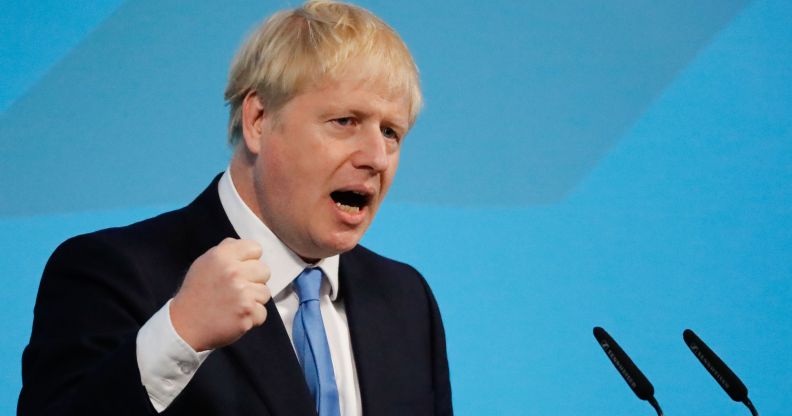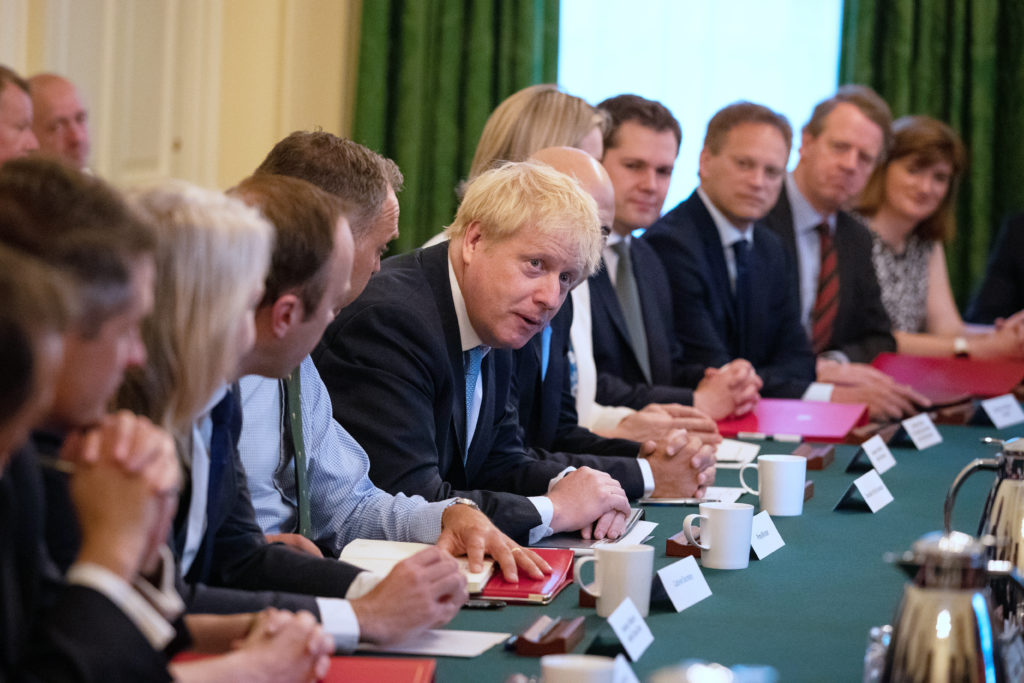Tories will remain in power after divisive UK election. This is what it means for LGBT people

Boris Johnson has been elected as the new Conservative leader and will become Prime Minister (TOLGA AKMEN/AFP/Getty)
The Conservative Party have secured a decisive victory in the UK general election, winning a large majority on a platform light on LGBT+ pledges.
The party is on course to receive a total of 365 MPs, having passed beyond the minimum 326 seats needed for victory early on Friday morning with many constituencies still to officially declare.
The Labour Party suffered a drastic defeat, claiming just 203 seats, while the Scottish National Party had a good night, claiming 48 of Scotland’s 59’s seats.
Meanwhile, the Liberal Democrats suffered a painful night, claiming just 11 seats.
The result means that Boris Johnson will return to his position as British prime minister, and likely locked in Number 10 for the next five years.
In what emerged as one of the most splintered, exhausting and vital elections in a generation, voters braved the rain and the cold to tick ballot boxes to decide what vision of the UK they will get behind.
It is one of a hard Brexit, a tough law-and-order approach to crime, an ambiguous future for public health services and a limited focus on LGBT+ rights.
The result will also mean likely change at the top of several political parties.
Labour leader Jeremy Corbyn has indicated that he plans to stand down, while Lib Dem leader Jo Swinson and DUP Westminster leader Nigel Dodds both lost their own seats in Parliament.
What does this mean for LGBT+ rights?
Johnson’s second term means a few things for LGBT+ rights.
In his party manifesto, queer rights were mentioned just three times.
Johnson’s government will continue to “help teachers tackle [homophobic] bullying”, continue tackling LGBT+ hate crimes and form an international “LGBT conference”.
Although, in a Q&A with PinkNews, Johnson stated that the Tories remain “committed to the LGBT+ Action Plan, including ending the practice of gay conversion therapy”.
Alongside that, the crucial reforms to the Gender Recognition Act will be announced “in due course” after a successive delays under Tory equalities ministers.
So, what happened?
The Conservatives have retained the number of seats needed to form a working government and received a sizeable majority.
For weeks, the majority the Tory Party clutched tightened and tightened as opposition parties drew the gap closer.
Yet, ultimately, the result was a decisive victory for Johnson over Labour’s Jeremy Corbyn, who has confirmed he will stand down.

Prime Minister Boris Johnson presides over his first Cabinet meeting at 10 Downing Street on July 25, 2019. (Aaron Chown – WPA Pool/Getty)
The Tory tidal wave saw some anti-LGBT candidates swept into office, with Sally-Ann Hart elected in Hastings and Rye despite facing a Conservative Party investigation over allegations of antisemitism, transphobia and Islamophobia.
However, there was some good news – with independent challenger Roger Godsiff, who was running on an anti-LGBT education platform in Birmingham Hall Green, failing to make a dent.

